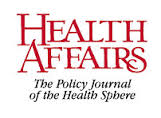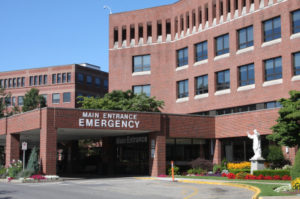PHC4 Reports on Hospital Mortality, Admission Rates, and Performance
Mortality rates, admission rates, and other aspects of hospital performance are the subject of a new report by the Pennsylvania Health Care Cost Containment Commission.
 The report presents information on hospital volume and outcomes for 17 different medical conditions and surgical procedures from October 2017 through September 2018. It also compares hospital performance over the five-year period from 2013 through 2018 on an aggregate state-wide basis and for individual hospitals.
The report presents information on hospital volume and outcomes for 17 different medical conditions and surgical procedures from October 2017 through September 2018. It also compares hospital performance over the five-year period from 2013 through 2018 on an aggregate state-wide basis and for individual hospitals.
Overall, the report found decreases in hospital mortality for most of the 17 conditions, with respiratory failure, sepsis, colorectal procedures, and intestinal obstructions experiencing the biggest decreases (by percentage). Hospital admissions for chest pain, chronic obstructive pulmonary disease, and pneumonia experienced the biggest declines while admissions for respiratory failure and sepsis experienced significant increases (in numbers).
For state-wide and hospital-specific data on hospital performance on 17 medical conditions and procedures, see the new PHC4 documents that together constitute its Hospital Performance Report 2018.
 The report includes:
The report includes: Specifically, they experienced:
Specifically, they experienced: The Medicaid DSH cut was included in the 2010 health care reform law in anticipation of a great reduction in the number of uninsured people leaving hospitals providing much less uncompensated care and therefore not in need of as much DSH money. The law’s reach has not proven to be as great as anticipated, however, and two developments since the law’s passage have put a damper on the expected rise in the number of insured Americans: a court decision that made it optional for states to expand their Medicaid program and the repeal of the requirement that everyone purchase health insurance.
The Medicaid DSH cut was included in the 2010 health care reform law in anticipation of a great reduction in the number of uninsured people leaving hospitals providing much less uncompensated care and therefore not in need of as much DSH money. The law’s reach has not proven to be as great as anticipated, however, and two developments since the law’s passage have put a damper on the expected rise in the number of insured Americans: a court decision that made it optional for states to expand their Medicaid program and the repeal of the requirement that everyone purchase health insurance. As reported by Kaiser Health News,
As reported by Kaiser Health News, The Philadelphia Business Journal reports that since Hahnemann’s closing was announced during the summer, ER volume has risen 15 percent, admissions have risen 12 percent, and births have risen more than 50 percent at Thomas Jefferson University Hospital, a SNAP member. Meanwhile, SNAP member Pennsylvania Hospital has seen its ER visits rise nine percent, SNAP member Penn Presbyterian Medical Center has seen its ER volume increase five percent, and SNAP member the Hospital of the University of Pennsylvania has seen its ER volume rise five percent.
The Philadelphia Business Journal reports that since Hahnemann’s closing was announced during the summer, ER volume has risen 15 percent, admissions have risen 12 percent, and births have risen more than 50 percent at Thomas Jefferson University Hospital, a SNAP member. Meanwhile, SNAP member Pennsylvania Hospital has seen its ER visits rise nine percent, SNAP member Penn Presbyterian Medical Center has seen its ER volume increase five percent, and SNAP member the Hospital of the University of Pennsylvania has seen its ER volume rise five percent. This area is served almost exclusively by Pennsylvania safety-net hospitals and recently suffered a major loss when one of those providers, Hahnemann University Hospital, closed its doors.
This area is served almost exclusively by Pennsylvania safety-net hospitals and recently suffered a major loss when one of those providers, Hahnemann University Hospital, closed its doors.  Pennsylvania rates will rise an average of four percent for individual plans and 9.7 percent for small groups, the state Insurance Department has announced. All insurers that offered plans in 2019 will do so again in 2020 and the exchange will include a new insurer and increased choice in some of the state’s 67 counties. Beginning in 2020, residents of only six counties will have only a single insurer offering individual plans.
Pennsylvania rates will rise an average of four percent for individual plans and 9.7 percent for small groups, the state Insurance Department has announced. All insurers that offered plans in 2019 will do so again in 2020 and the exchange will include a new insurer and increased choice in some of the state’s 67 counties. Beginning in 2020, residents of only six counties will have only a single insurer offering individual plans. The Department of Human Services bulletin outlines the purpose of the new PDL, provides background information, and describes how the PDL was developed and will work. In addition, it lists the past Medical Assistance Bulletins rendered obsolete by the new bulletin and describes the prior authorization procedures that will be employed when the new program takes effect on January 1, 2020.
The Department of Human Services bulletin outlines the purpose of the new PDL, provides background information, and describes how the PDL was developed and will work. In addition, it lists the past Medical Assistance Bulletins rendered obsolete by the new bulletin and describes the prior authorization procedures that will be employed when the new program takes effect on January 1, 2020.